Denmark's massive bid for youth employment and education
Fighting youth unemployment is a top priority in Denmark. A range of new measures are in place to get more young people into education.
When Stine Rasmussen Draslov became pregnant and dropped out of her residential school course at 17, she never once imagined that would be the beginning of seven years with no steady job. At 24 she worked for one year at a petrol station, before once again joining the ranks of the unemployed. Now, at 27, she is doing an internship in a supermarket as part of a national project which aims to get young people into education and work.
"I had been unemployed for many years and had finally given up finding a job, so it is nice to be back on track. I've got something to talk about when I get home. Earlier I had nothing to contribute when my husband would talk about his day at work. I was always just at home," she says.
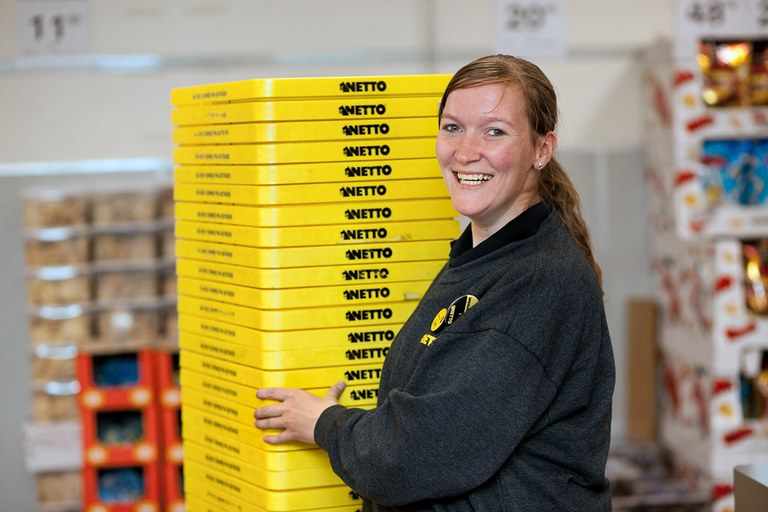
The municipal job centre found her the job at a Netto supermarket in Greve south of Copenhagen. Greve municipality is one of 14 municipalities which take part in the project 'Youth - well underway'. The project is part of the government's plan to get more young people into education and work, and will be Denmark's most comprehensive mapping of which tools work best when it comes to getting young unemployed people jobs or education.
Stine Rasmussen Draslov is one of the 2,000 young people who have been chosen to take part in the project. She and all the others get extra support from the job centre and they are all assigned a mentor each. At the end of the project, the results among the participants will be compared to a control group of 2,000 other young unemployed who have not been given any special treatment from their job centres.
Dream job: pedagogue
The extra support is very important to Stine Rasmussen Draslov. Once a fortnight someone from the job centre will visit her at work, an she also has regular meetings with her mentor from her employer, Dansk Supermarked.
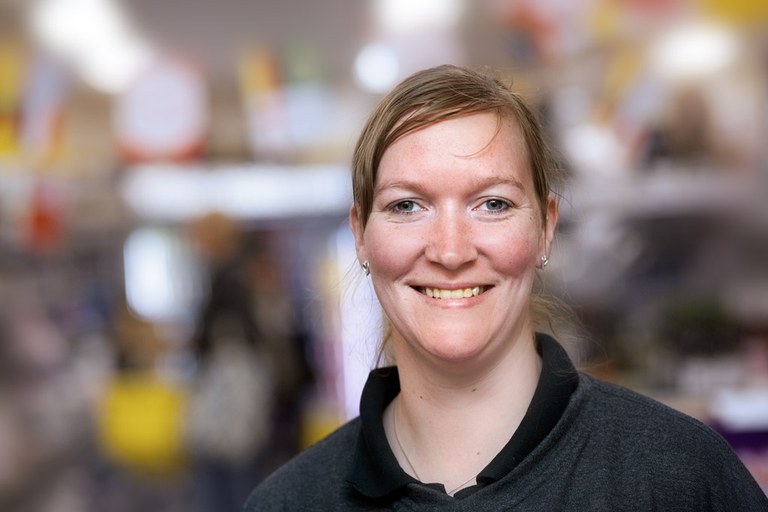
"The extra support is very nice. I guess I need a more rigid framework around my work than most people. I like, for instance, to have everything I need to do over a working day written down on a piece of paper. That way I can always ask whether there is anything else I could do once I've finished all my pre-planned tasks."
Stine Rasmussen Draslov is offered special training for her dyslexia once a week, but she confesses she can't find time to attend every week. The training is organised by the job center. From there she has also got a laptop computer with a program which will read any text out loud for her. It allows her to do things like scanning letters from the municipality into the computer and having it read back to her, when she finds it hard to read it herself.
Stine Rasmussen Draslov left school after year 10 (at age 16) but always dreamt of becoming a pedagogue. But the education she would need for that is too long and too hard, she thinks. A more realistic option, she says, is to study to become a social and healthcare assistant - a much shorter course.
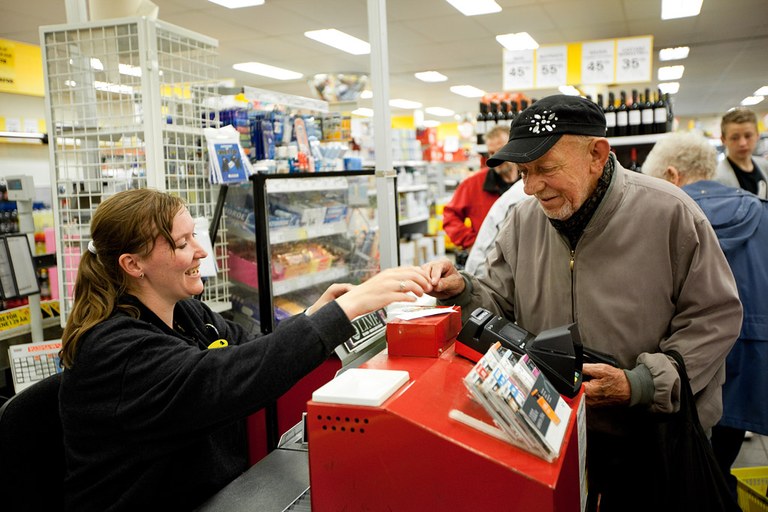
"I can really see myself working with older people in home care. But when I start an education I want it to be something I can finish. So it won't happen quite yet. My son is only four, so I don't want to work full time and I don't feel ready to get an education."
A new national youth unit
Last autumn a large parliamentary majority voted in a youth plan (the so-called 'ungepakken') designed to prevent the emergence of a lost generation who would never properly integrate into the labour market. Nearly half a billion Danish kroner (€670,000) has been allocated to boost active employment policies for young people between 18 and 30. The youth plan includes soft approaches - like mentoring - as well as tough ones, like cuts in child benefits for those who don't finish their education. Job centres are to play a more active role and will offer courses in reading and writing or work placements in cases where such measures can help young people move on.
Politicians and the parties to the labour market are in broad agreement on the need for an extraordinary and targeted drive to get as many young unemployed as possible into jobs or education. Young people with no education are more likely to end up unemployed and remain so for longer compared to people with a relevant education.
A new national youth unit was established this April to help Denmark's municipalities and job centres make the most of the youth drive. The unit has established a squad which will travel to all Danish municipalities to showcase good examples and the latest knowledge in the field of youth unemployment.
"Everyone agrees youth unemployment is a large, serious and acute problem and that far more young people need help to get into education or jobs. Many non-skilled jobs have disappeared during the economic crisis, and they won't return. We need more people in education and we must make sure that they finish that education," says Kurt Nielsen, the coordinator for the new national youth unit.
Three educations at 25
One young person who has understood the importance of education is 25 year old Michael Hartmann Ejlerskov. With support from his job centre he is now re-training for a third time. On leaving secondary school he trained as a shop assistant and worked for two years in a clothes shop. Then he trained in insurance and worked for an insurance company. Last year he lost that job and was unemployed for three months before his job centre offered him training to be a medical secretary. He said yes, please.
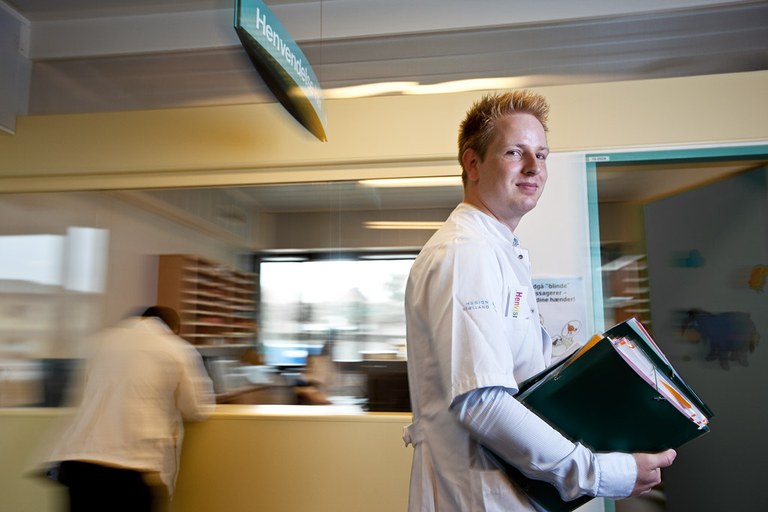
"It was a bit of a leap to retrain for a job I knew little about. But I risked being enrolled in active work training, and the job centre also helped me out a lot and took time to find something which suited my life situation, being a father with two small children. That's why I said yes," says Michael Hartmann Ejlerskov.
He has now finished his introductory training and has just finished his first day working as a medical secretary at the children's ward at Roskilde Hospital.
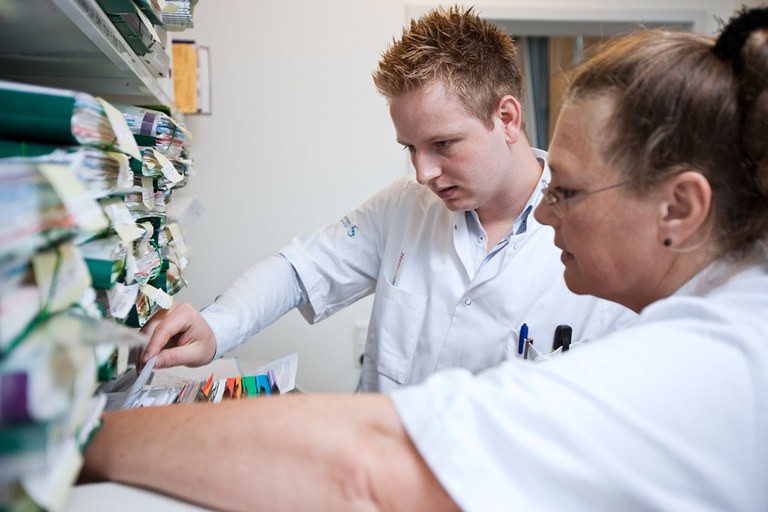
- Facts 1 - Project ‘Youth - well underway’
-
So far the most comprehensive attempt to map job centres' efforts to help young unemployed. Head of section Stig Martin Nørgaard at Denmark's Labour Market Authority reckons its attempt to precisely map the effect of the various measures involving such a large number of youths makes it unique in Europe.
Cost: ca 20 million kroner (€2.7 million).
It involves 2,000 youths across 14 municipalities who all receive intensive and tailored help, while a control group of 2,000 youths receive the normal help they can expect from their job centre. The target group is under-30s receiving unemployment benefits.
Normal help from job centres for this group includes:
- Conversation about possible jobs no later than one month after start of unemployment period.
- Third-monthly conversations at the job centre after that.
- An active offer after three months of unemployment.
Extra help offered by job centres to youth involved in the project:
- Conversation about possible measures to find jobs during the first week of unemployment.
- Weekly or fortnightly conversations after that.
- Assessment of reading and writing skills. Reading and writing training offered if needed, along with other active measures.
- Young people with no education will be prioritised and receive an individually tailored activation programme no later than six weeks after becoming unemployed.
- Young people with no education will be assigned a mentor who will accompany them to the job centre, the work place or the place of training.
- Young people who need it will also be offered physical training, nutrition advise, psychological help and more.
- Facts 2 - OECD praise
-
The OECD praised Danmark for its fight against youth unemployment in its January report. The organisation says the dynamic cooperation between labour market and a highly developed activation strategy has helped Denmark do better than most other OECD countries during the current crisis when it comes to finding jobs for more young people. Yet some countries do even better, like Holland, Norway, Germany and Austria.
 Follow us on Facebook
Follow us on Facebook
